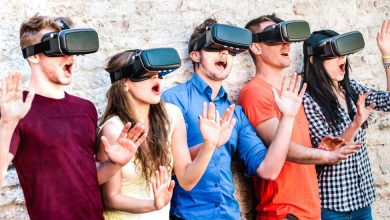A Detailed Guide About Technology And The Future Of Mental Health Treatment

Technology and the future of mental health treatment
Data collection and mental health support have been revolutionized by technology. Public authorities, doctors, and researchers can now access help, monitor progress, and gain a deeper understanding of mental well-being through mobile devices like cell phones, smartphones, and tablets.
It is possible to provide mobile mental health support straightforwardly and effectively. For example, people who can send texts can get in touch with crisis centers. It is also possible to package new technology into a highly sophisticated app for smartphones or tablets.
This type of app utilizes a device’s built-in sensors to track a user’s typical behavior. An app can detect a change in behavior and alert you before a crisis occurs if it detects a behavior change. A comprehensive directory of alcohol rehabs, process rehabs, and drug rehabs in South Africa is provided by Rehab Helper for addicts and their families.
Current technology for the future of mental health treatment
There are several teams of researchers and engineers working together to address mental health issues. Among the most popular areas of app development are:
Apps for skill-training
A skill-training app allows users to acquire new coping or thinking skills, unlike other mental health apps. It might be helpful if the user watched an educational video on anxiety management or social support. Using the app, the user can track how often those new skills are practiced after picking new strategies.
Thinking Skills Apps
Apps that help users improve their thinking skills (cognitive remediation) are promising. These apps often target people with serious mental illnesses.
Apps for self-management
The term “self-management” refers to the process of entering information into an app so that it can provide feedback. The user can use the app to create tools to deal with stress, anxiety, and sleep problems, such as setting up medication reminders. With some software, a user can track progress and receive feedback by using additional equipment to measure heart rate, breathing patterns, blood pressure, etc.
A passive symptom-tracking system
A lot of effort goes into developing apps that use sensors built into smartphones to collect data. Sensors can also record social interactions (like text messages and phone calls) and behavior throughout the day in addition to movement patterns. As a result of these data, apps can determine a user’s real-time mental state in the future.
Apps like this may be able to detect changes in behavior patterns that signal mood episodes like mania, depression, and psychosis before they happen. Apps cannot replace mental health professionals, but they can alert caregivers when a client needs more assistance. The apps must support a variety of users, including those with serious mental illnesses.
Illness management and supported care
The interaction with another human being provided by this app technology adds additional support to the user’s experience. It may assist the user in connecting with peer support or sending information to a trained healthcare provider who can provide guidance and therapy options. The effectiveness of app-based treatments depends on how much human interaction people receive.
Pros of mental health technology
- A lower cost of care: Some apps offer free care or are less expensive than traditional healthcare options.
- Making mental health treatment more accessible: Technology can enable providers to treat people in remote areas or many people at once (for example, after a natural disaster or terror attack).
- 24/7 monitoring and intervention: Technology enables round-the-clock tracking and intervention.
Cons of mental health technology
- Privacy: App makers should be able to guarantee privacy for app users because apps handle sensitive information.
- Guidelines: Consumers do not have industry-wide standards to determine an app’s effectiveness.
- Regulation of data: It is essential to determine who will or should regulate mental health technology.
Conclusion
Hence emerging technologies are advancing rapidly to assess, monitor, and treat mental health conditions. Individuals and communities can benefit from these innovations by expanding treatment options and improving health and well-being. Get in touch with Ixande Clinic and learn what options your medical aid company offers for addiction treatment and rehabilitation.





